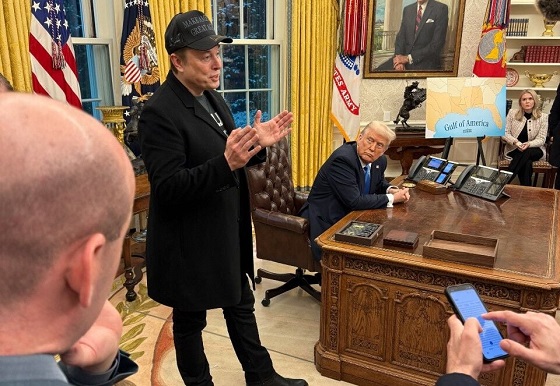From The Center Square
Some federal agencies aren’t planning to tell billionaire cost-cutting boss Elon Musk what they accomplished last week as President Donald Trump looks to reshape the federal workforce.
The U.S. Office of Personnel Management, which serves as the federal government’s human resources office, sent a short email Saturday to all federal employees asking them what they accomplished last week. It asked them to respond with five bullets of what they accomplished and to include their supervisor on the reply. Musk, the Tesla boss and White House advisor, said he wanted to know how many employees were actually checking emails and said the bar was low for responses.
Trump said Monday the email was a “great” idea.
“We have people that don’t show up to work and nobody even knows if they work for the government so by asking the question ‘tell us what you did this week,’ what [Elon’s] doing is saying are you actually working?” Trump said. “And then, if you don’t answer, you’re sort of semi-fired or you’re fired because a lot of people aren’t answering because they don’t exist, that’s how badly various parts of our government were run.”
Musk called the email “a very basic pulse check.”
“The reason this matters is that a significant number of people who are supposed to be working for the government are doing so little work that they are not checking their email at all!” Musk wrote on X. “In some cases, we believe non-existent people or the identities of dead people are being used to collect paychecks. In other words, there is outright fraud.”
Some unions immediately pushed back on the email. The American Federation of Government Employees, which represents about 800,000 federal employees, said it was a bullying technique.
“It has become even more clear that the thoughtless and bullying email was meant to intimidate federal employees and cause mass confusion. Agencies across the federal government have acknowledged that confusion and that they were unaware the email was being sent,” AFGE National President Everett Kelley said. “Though we believe the email and the resulting agency instructions are improper, we advise that you comply with any directive that has come from your agency. Simply put, if your agency has asked you to reply, you should do so and highlight the important work that you do for the American people.”
Kelley also said union members who do respond should ask for overtime.
“If you wish to respond, you may wish to ask your supervisor for any overtime or compensatory time that you may be entitled,” he wrote.
But some federal agencies are ignoring the email. Justice Department employees were told they don’t need to respond. FBI Director Kash Patel told his employees to “pause any responses” to the OPM email. Other agencies not planning to participate include the State Department, the National Institutes of Health and the National Security Agency.
The largest federal agency also isn’t playing along. In a letter to Department of Defense employees, Darin Selnick, who is performing the duties of the undersecretary of defense for personnel and readiness, said it does its own performance reviews.
“DoD personnel may have received an email from OPM requesting information. The Department of Defense is responsible for reviewing the performance of its personnel and it will conduct any review in accordance with its own procedures,” Selnick wrote. “When and if required, the Department will coordinate responses to the email you have received from OPM. For now, please pause any response to the OPM email titled, ‘What did you do last week.'”
Patel’s response at the FBI was similar.
“The FBI, through the Office of the Director, is in charge of all of our review processes and will conduct reviews in accordance with FBI procedures,” Patel wrote. “When and if further information is required, we will coordinate the responses. For now, please pause any responses.”
Since returning to the White House, Trump has promised to overhaul the federal workforce through mass layoffs, plans to shutter some federal agencies and efforts to get rid of waste and redundancy.















